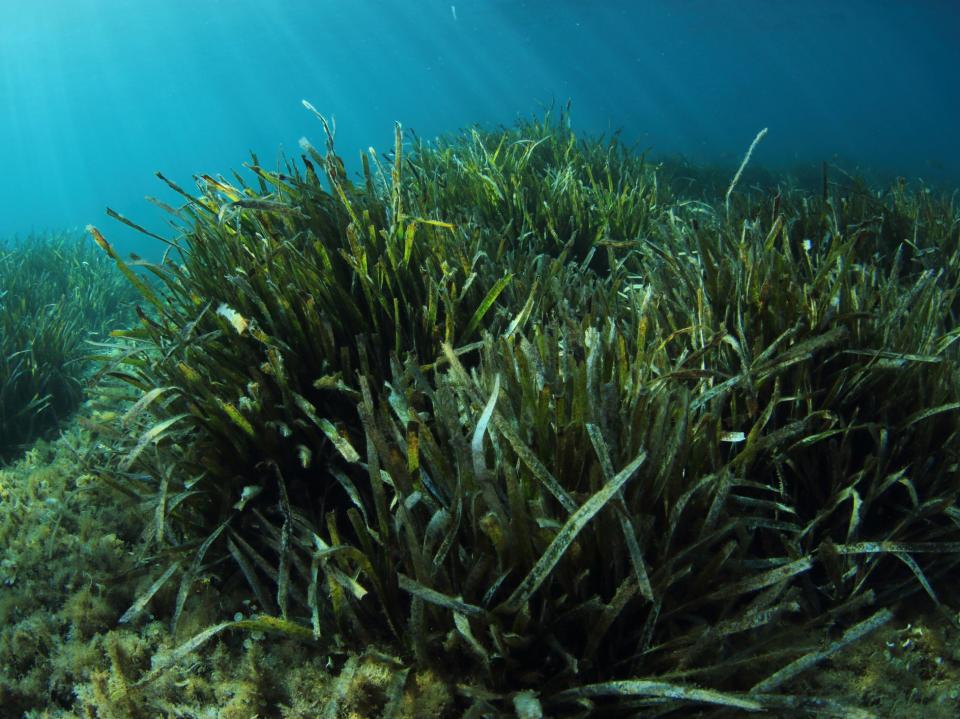Seagrass meadow restoration project aims to store carbon and boost biodiversity on UK’s south coast

A major effort to restore the UK’s embattled seagrass meadows is underway as thousands of seed bags have been placed in Plymouth Sound National Marine Park in England’s largest seagrass planting programme.
The grass, which absorbs and stores carbon dioxide and provides essential habitat for sea creatures, has declined precipitously over the last century, with almost 40 per cent lost since just the 1980s, and as much as 92 per cent since the early 20th century.
A wasting disease which hit UK seagrass in the 1930s played a major role in reducing the size of the meadows around the coast, but since then, human pressures have continued the downward trend: coastal development, dredging, anchoring and boating activities can physically impact the fragile grasses, while pollution and chemical run-off from land is also a key threat.
In the Plymouth Sound and the nearby Solent Maritime Special Area of Conservation, 16,000 seagrass seed bags and 2,200 seedling bags have been planted as part of a four-year project aiming to plant a total of eight hectares of seagrass meadows.
The presence of seagrass slows down water currents and it is hoped these calm meadows will provide homes for young fish and protected species such as seahorses and stalked jellyfish, alongside others such as crabs, sea snails, cuttlefish and pipefish.
If the project is successful, the new seagrass meadows will also help clean the water, stabilise the seabed and store significant amounts of carbon.
The Life Recreation Remedies project is being led by Natural England, with the planting being carried out by project partner the Ocean Conservation Trust.
Mark Parry, development officer at Ocean Conservation Trust, said: “Our first successful planting effort is only possible because of all the hard work of the partners in the Life Remedies project.
“These events have taken over 12 months of planning and include a combination of volunteers who have visited the National Marine Aquarium creating our planting units and our dive volunteers. This truly is a community effort.
“It is incredible to see the support from local communities supporting habitats for our animal coastal communities, a very proud moment.”
As well as planting new seagrass meadows, the project is also working to help protect those already in existence by helping people minimise their impacts on these fragile ecosystems.
Natural England and Remedies partners plan to extend the benefits of this work beyond the UK to assist with international marine recovery efforts.
Techniques and evidence gathered during the project will be logged and shared with marine conservation organisations across Europe to help them learn from and replicate the work.
Paul Barnard, service director for strategic planning and infrastructure at Plymouth City Council, said: “We’re really pleased to be a partner in this exciting Remedies initiative in Plymouth Sound, which not only supports our ambition to become a National Marine Park but also marks an important action in our Climate Emergency Action Plan.
“By working together, we can raise awareness about the importance of seagrass, reduce the impact on these sensitive habitats and encourage both local communities and visitors to help look after our ‘blue’ environment for the future.”
Read More
Earth Day quiz: How much do you know about climate change?
Earth Day 2021: A look back at The Independent’s three decades of climate crisis coverage

 Yahoo Finance
Yahoo Finance 